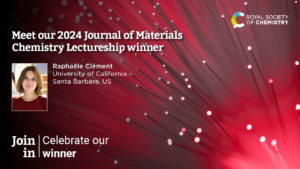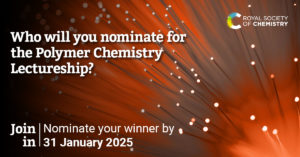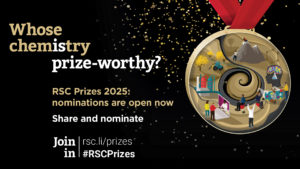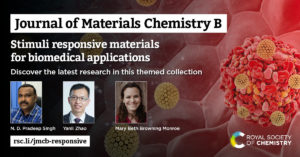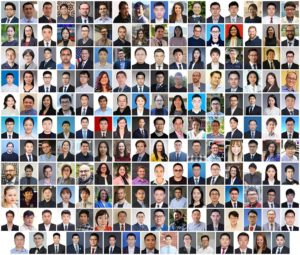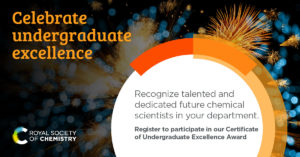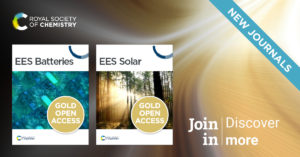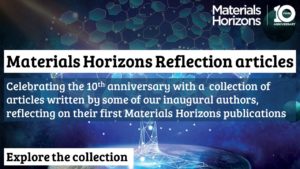The decades-long partnership between RSC and the Brazilian Chemical Society (SBQ) continues to thrive. At least year’s SBQ Annual Meeting, we renewed a Memorandum of Agreement (MoU) between the societies. This year, Beth attended the 47th Annual SBQ meeting, where she met with the local community to emphasize our commitment to Open Access and our dedication to lessening barriers to publishing and reading articles in our journals. Additionally, an agreement with the government funding agency (CAPES) is underway.
In recent years, the RSC and SBQ have worked together to support Early Career researchers. In 2024, we celebrated the fourth annual RSC-SBQ Young Researchers Award. This award was a common initiative between the RSC Brazil office and a committee representing early career scientists, Younger Researchers of the Brazilian Chemical Society (JP-SBQ). The JP-SBQ is comprised of graduate students, post-docs, and early-stage industrial researchers. Their mission is to promote the representation of Brazilian younger researchers in the national and international scientific community, which aligns with RSC’s own priorities in the region. This year, we recognize not only the winners, but an exceptionally strong candidate pool for the award.
|
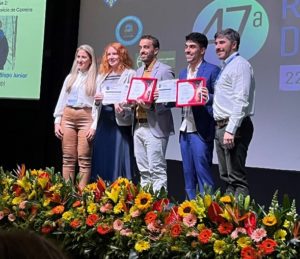 
Winners of the RSC-SBQ Young Researchers Award
Left to right: Prof Dr Vanessa Nascimento (UFF-RJ, JP-SBQ), Dr Laura Fisher (RSC), Airton Germano Bispo Junior (UNICAMP-SP), Rubens Lucas de Freitas Filho (UFMG-MG) and Prof. Dr. Edson Anjos (UFMS-MS, JP-SBQ). Winners were each eligible for £1800 to advance their careers.
|
Alongside Beth, the RSC was also represented at the SBQ annual meeting by the executive editor of RSC Advances, Laura Fisher. Laura gave an engaging presentation about publication pathways and the Open Access movement at RSC, including an excellent discussion on support for the local community during the transition period. She also was able to meet with many researchers and students at the exhibition booth, as well as Brazilian board members from various RSC journals.
|
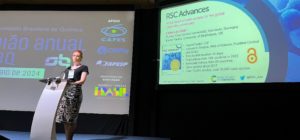 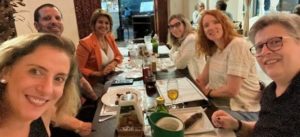
Left: Laura giving her presentation. Right: Profs Drs Celia Ronconi (UFF-RJ, board member for Dalton Transactions, FRSC), Brenno Neto (UnB-DF, board member for RSC Advances), Marcia Mesko (UFPel-RS, board member for JAAS), Giovanna Machado (CETENE-PE), Laura Fisher and Elizabeth Magalhaes (RSC).
|
At this year’s meeting, the outgoing SBQ President, Prof. Dr Shirley Nakagaki (UFPR-PR, Editorial Board member for RSC Advances), empowered her successor as her term expired in 2024. She spoke highly of Prof. Dr. Rossimiriam Freitas (UFMG-MG) as incoming SBQ president, highlighting how the society is supporting diversity and inclusion at the highest levels of leadership.
|
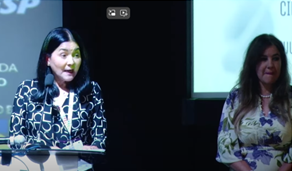
Prof. Dr Shirley Nakagaki (UFPR-PR, Editorial Board member for RSC Advances) welcomes new SBQ President, Prof. Dr Rossimiriam Freitas (UFMG-MG).
|
Comments Off on 47th Brazilian Chemical Society Annual Meeting – 47RA.SBQ


